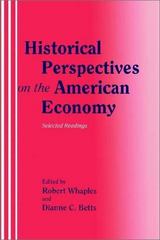Question
Practice quiz. keep getting several wrong, does't say which ones. Just answers, no explanation if fine. 1) The term marginal social benefit means A) Benefits
Practice quiz. keep getting several wrong, does't say which ones. Just answers, no explanation if fine.
1) The term "marginal social benefit" means
A) Benefits are just above the margin of being zero
B) The entire benefits from the activity
C) That part of the benefits covered by the costs of the activity
D) The change in total social benefits per unit change in the amount of activity
2) When the cost of an action fall on other than the person (or persons) responsible for the action, which of the following exists?
A) Positive externality
B)Negative externality
C) Externality in consumption
D)Externality in production
3)The free-rider problem refers to
A) Those who receive the benefits of a public good without paying for part of its costs
B) Those who ride public transportation without paying their fares
C) Negative externality in production
D) Jockeys who are not paid
4)The marginal cost of a good is
A) The change in total product associated with a change in resource inputs
B) The average cost of a product
C) The total cost of the good divided by input
D) The change in total cost per unit change in output
5) A benefit of Higher Education is
A) Future job opportunities
B) Future income potential
C) A more educated population
D) All of the above
6) Legislative changes that have allowed greater access to higher education include all of the following except
A) Morrill Land Grant Act
B) G.I. Bill
C) Pell Grant Program
D)Jefferson Education Act
7) A market for pollution rights is an efficient approach to pollution control because
A) It is cheap to implement
B) It leads to the complete elimination of pollution
C) It causes the pollution to be eliminated at the lowest cost
D) It is easy to enforce
8) For a tax on pollution to be effective, it must be
A) Placed on the firm polluting
B) Greater than the cost of cleaning-up the pollution
C) Placed on the consumer
D) Less than the cost of cleaning up the pollution
9) The use of pollution rights licenses can improve efficiency and reduce pollution since
A) Pollution rights licenses do not improve efficiency nor reduce pollution
B) The licenses give environmental groups pollution reducing permits
C) The cost to purchase these licenses means that social costs are reflected in the firm's costs, giving the firm an incentive to reduce pollution when it is economically beneficial
D) Such licenses improve efficiency by pricing pollution but the licenses do not reduce pollution
10) Illegal acts are
A) Also immoral
B) Ones that society has determined that it is better off allowing
C) Designated as such by the criminal justice system
D) Prevented once a law is passed
11) Which of the following creates a positive externality in production?
A) Polluting a river
B) Playing loud music
C) Vaccinations
D) Reducing the cost of producing another good
12) People have an incentive to pollute when
1) No one has property rights to the environment
2) It is less expensive to pollute than to clean up
3) The MPC of polluting < MPC of cleanup
4) All of the above
Step by Step Solution
There are 3 Steps involved in it
Step: 1

Get Instant Access to Expert-Tailored Solutions
See step-by-step solutions with expert insights and AI powered tools for academic success
Step: 2

Step: 3

Ace Your Homework with AI
Get the answers you need in no time with our AI-driven, step-by-step assistance
Get Started


